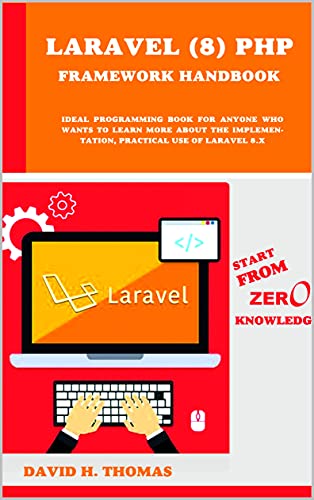Download this PDF book: Green Chemistry for Sustainable Water Purification by Shahid Ul-Islam, Aabid Hussain Shalla, Mohammad Shahadat
GREEN CHEMISTRY for Sustainable Water Purification
Green Chemistry for Sustainable Water Purification provides systematic coverage of the most recent research and development in clean water treatment technologies based on green materials and nanocomposites.
Providing safe drinking water is one of the top priorities for scientists and industrialists working on projects, and one particular problem is the contamination of groundwater with toxic organic and inorganic compounds released by various industries.
The presence of contaminants or industrial effluents in drinking water systems has increasingly become a major environmental challenge. To address the problem, several methods, including ion exchange, membrane filtration, advanced oxidation, biological degradation, photocatalytic degradation, electro-coagulation, and adsorption, are in operation for removing or minimizing these wastes.
The purification process of wastewater using conventional methods, however, has proved to be markedly ineffective, very difficult, and highly expensive.
On the other hand, for the remediation of water resources, a concept like green chemistry, based on the application of biological agents including polymers, bacteria, and fungi, has received great scientific attention as it helps to avoid the toxic by-products of conventional techniques and enhances eco-friendly wastewater treatment approaches.
This book discusses the different treatment technologies with a special focus on the green adsorption approach, using biological and hybrid biochemical treatment technologies to prevent water contamination and maintain the ecosystem.
It discusses the analysis of organic and inorganic pollutants from industrial wastewater. It also focuses on the removal and recovery of organic and inorganic contaminants from the environment and several case studies describing the removal and recovery of environmental pollutants using green technology are given.
The recycling of low-cost along with green adsorbent technology is explained in detail. Finally, the book highlights treatment technologies with effective pollutant removal capacities that are used in modern water treatment units.
Audience
The book will serve as an important resource for materials scientists, chemists, chemical engineers, biotechnologists, textile engineers and environmental scientists.
It will also be valuable to industrial organizations, consulting engineering companies, etc. for the selection and implementation of the most sustainable wastewater treatment technologies.
With the curve of industrialization growing exponentially, the quality index of natural resources is facing a deteriorating trend. Water is one of the most abundantly available natural resources that is being exploited tremendously by humans.
Gallons of water are consumed in our day-to-day activities, starting from industrial to household. This exploitation has proved to be a boomerang for them and, hence, ways are being sought to recover, reuse, and preserve this natural resource.
Treatment of wastewater has been a subject of interest for a long time, and techniques have been established for the same.
However, the chemical treatments of wastewater often adversely affect the environment.
The by-products of these processes are often toxic and pose serious health hazards. Hence, a concept like green chemistry has come into the picture for the remediation of water resources.
It has proved to be one of the key tools to achieve sustainability by providing appropriate solutions to existing problems. It helps to avoid the toxic by-products of conventional techniques and enhances ecofriendly wastewater treatment approaches.
This chapter deals with the various principles of green chemistry in brief and the methods of water remediation in detail. Various chemical treatments of water using green technology have been discussed in detail. Various challenges faced in the path of treatment have also been highlighted.
About the Author
Shahid-ul-Islam, PhD, is a Research Scientist at the Department of Textile & Fiber Engineering, Indian Institute of Technology Delhi (IIT). His area of interests are antimicrobial coatings, green chemistry, fibers & polymers, polymeric composites and nanocomoposites and nano-biotechnology.
He has published numerous peer-reviewed research articles in journals of high repute including contributions to several internationally recognized books published by the Wiley-Scrivener imprint, Springer, and Elsevier.
Aabid Hussain Shalla, PhD, is an associate professor in the Department of Chemistry at Islamic University of Science and Technology, J&K, India. He has more than 35 publications in international journals, three books, and many book chapters to his credit.
His research interests include the synthesis of hybrid ion exchange materials/ion-selective electrodes/synthesis of smart responsive hydrogels to envisage their application in the removal and identification of toxic heavy metal ions, dyes, and polyaromatic hydrocarbons (PAHs) in wastewaters.
Mohammad Shahadat, PhD, is a senior lecturer at the School of Chemical Sciences, Universiti Sains Malaysia (USM), Penang, Malaysia. He has published over 60 research papers and 8 review articles in international journals as well as edited one book and 25 book chapters.
His research interests include synthesis, characterization, green technologies, chitosan/polyaniline-supported biodegradable nanocomposite materials, and their significant applications in various fields, including drug delivery systems.
About the book:
Publisher : Wiley-Scrivener; 1st edition (2023)
Language : English
Pages : 304
File : PDF, 15MB
Free Download the Book: Green Chemistry for Sustainable Water Purification by Shahid Ul-Islam, Aabid Hussain Shalla, Mohammad Shahadat
PS: Share the link with your friends
If the Download link is not working, kindly drop a comment below, so we'll update the download link for you.
Happy downloading!









